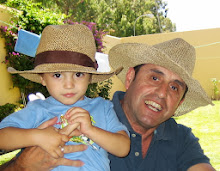A New Year is knocking at the door. Let's let it in. Every new year comes full of blessings if we only open our hearts to appreciate them.
Singing the Auld Lang Syne at the stroke of midnight has become a tradition in English-speaking countries and others. If you want to learn more about this tradition, read here.
Hogmanay is the name given to the celebrations of the New Year in Scotland. It is a very exciting celebration especially in Edinburgh. Read more about it.












